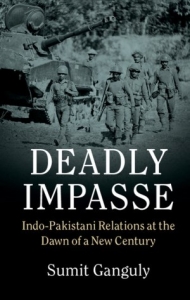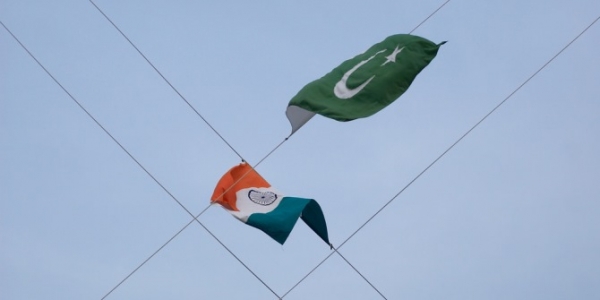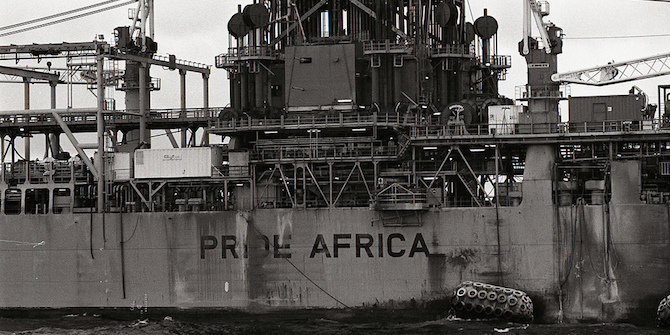Kashmir has been a thorn in the side of Indo-Pakistani relations since partition and remains a highly contentious issue today. In Deadly Impasse: Indo-Pakistani Relations at the Dawn of a New Century, political scientist Sumit Ganguly traces the conflict from its inception to the fallout from terrorist attacks in the 2000s. Raj Verma writes that the book is an essential read for students at all levels, as well as scholars, policymakers and government officials who want to familiarise themselves with India-Pakistan relations.
Deadly Impasse: Indo-Pakistani Relations at the Dawn of a New Century. Sumit Ganguly. Cambridge University Press. 2016.
 India and Pakistan have fought three wars since partition and were involved in the Kargil conflict (which some scholars also refer to as a war) in 1999 as Kashmir and cross-border terrorism have led to ongoing tensions which periodically spill over into open conflict. The bilateral relationship is further convoluted by both countries’ ties with other key players, namely the US, China, and Afghanistan (Chapter 6). It is made even more complex by the over-simplified media headlines and misunderstanding of each other’s strategic thinking and domestic politics.
India and Pakistan have fought three wars since partition and were involved in the Kargil conflict (which some scholars also refer to as a war) in 1999 as Kashmir and cross-border terrorism have led to ongoing tensions which periodically spill over into open conflict. The bilateral relationship is further convoluted by both countries’ ties with other key players, namely the US, China, and Afghanistan (Chapter 6). It is made even more complex by the over-simplified media headlines and misunderstanding of each other’s strategic thinking and domestic politics.
Sumit Ganguly’s Deadly Impasse provides an excellent objective historical account of India-Pakistan relations since the two countries became independent in 1947. The work is an extension of his previous work on the South Asian neighbours which he acknowledges in the Preface. Ganguly has conducted numerous interviews which augment the analytical robustness and empirical richness of the book. The main focus is Kashmir and how it has affected the bilateral relationship, tracing the origins of the tensions back to the conflict over the Himalayan state immediately after the two countries became independent. The book discusses the wars in 1965 and 1971, the Kargil conflict, the insurgency and turmoil in Kashmir and numerous terrorist attacks including those on the Indian parliament in 2001 and Mumbai in 2008, and explosions in public places leading to the death of innocent civilians amidst allegations of state sponsored terrorism by India which have been denied by Pakistan despite irrefutable evidence. Ganguly asserts that it seems the security establishment in Pakistan namely the Army and the Inter Services Intelligence (ISI) especially ISI-Directorate have lost control over some of the terrorist organisations and other non-state actors that it fostered and sustained.
The book discusses the role of various organisations, institutions and actors, their dispositions based on their cognition and interests, and different measures and mechanisms adopted by the two countries to resolve the Kashmir dispute, their failure to do so and attempts – including confidence building measures – to mitigate tensions and ensure it does not lead to another war between the nuclear-armed neighbours. For instance, the Agra Summit (which is discussed in some detail) illustrates the role played by Home Minster, L. K. Advani and Sushma Swaraj to stall the negotiations leading to the failure of the Agra Summit. The book also highlights the important role of US diplomacy in preventing war and conflict between the arch rivals, mitigating tensions and exerting pressure on the two countries to start talks and sit on the negotiating table.

Ganguly is pessimistic regarding the resolution of the Kashmir dispute and prospect of ending rivalry between the two countries. His main argument is that the bilateral relationship cannot be interpreted as a security dilemma. Despite repeated assurances from India that it does not want to occupy Pakistan’s territory, Pakistan has continued to needle India by using one ruse or the other. Pakistan is not a security-seeking or security maximising-state. It is described as a “greedy state” and a “revisionist state” because it wants to expand its territory by occupying Kashmir which is an integral part of India. Policymakers in Pakistan see the area as an unfinished business from partition. Ganguly supports this point by highlighting that according to the Indian constitution the whole of Kashmir is a part of India. The Pakistan constitution designates Kashmir as an independent territory that it is not a part of Pakistan. He builds on this by arguing that if Pakistan was purely defensive it would not have entered into a war in 1947-48 because there was no threat to its security. The same goes for 1965 when Pakistan invaded India. In the Kargil conflict too, Pakistan tried to acquire Indian territory in disputed Kashmir. India has only invaded Pakistan once, in 1971, to expand the theatre of war. India has never tried to increase its territory in Jammu and Kashmir except when it took pre-emptive action on the Siachen Glacier in the 1980’s. Even during the Kargil War, Indian army and air force were instructed not to cross the Line of Control or the International Border although doing so provided a distinct advantage to Indian troops. Ganguly argues that the Pakistan’s security establishment would never allow amicable relations between the two neighbours because of domestic compulsions and vested interests.
In the concluding chapter, Ganguly opines that there are two future scenarios for the bilateral relationship. First, the rivalry will cease to matter because the gap in capabilities between the two countries will become so huge that whatever stratagems the Pakistani security establishment will employ will be insignificant. In the second scenario, the conflictual relationship might end due to internal or external shocks which may undermine the privileged position of Pakistan’s security establishment. He also provides numerous policy measures to resolve the dispute and bring peace between the South Asian neighbours.
However, there are some problems with the measures he suggests. First, he is correct to state that Indian state’s policy has been a failure because it considers the turmoil in Kashmir as a law and order issue and has failed to come up with a political initiative to address a range of underlying grievances. However, the suggestion of providing greater autonomy to Kashmir is problematic. This could lead to demands for greater autonomy from other restive states and regions in India which would undermine the core logic of the Indian union. Second is the issue of ballistic missile defence (BMD). Ganguly agrees that India’s military modernisation is geared towards China and not Pakistan but any suggestion to pursue regional arms control regime with Pakistan undermines India’s security vis-à-vis China. If a BMD agreement is to be reached, it can only be for short range missiles but Pakistan will not be party to this because it undermines Pakistan’s strike capabilities vis-à-vis geographically larger India.
Sumit Ganguly’s “Deadly Impasse” is an essential read for students at all levels, scholars, policy makers and government officials who want to familiarise themselves with India-Pakistan relations especially the Kashmir issue, India’s strategic culture and the role of interest groups and domestic factors in India’s and Pakistan’s foreign policy.
This article gives the views of the author, and not the position of the South Asia @ LSE blog, nor of the London School of Economics. Please read our comments policy before posting.
About the Author
Dr Raj Verma is Assistant Professor of International Relations and Foreign Policy at the School of International and Public Affairs, Jilin University, China and Visiting Fellow, Institute for Defence Studies and Analysis, India. He is the author of ‘India and China in Africa: A comparative perspective of the oil industry’, Routledge. He is working on the manuscript of his forthcoming book ‘Neoclassical Realism, political economy and resource mobilisation’.







